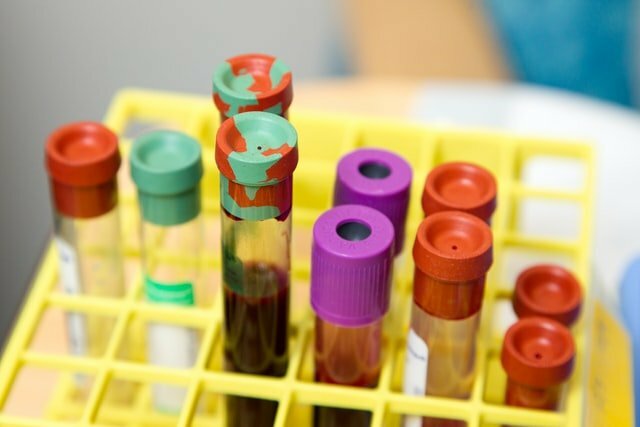Understanding Blood Alcohol Content (BAC) Levels
If you drink alcohol or are addicted to alcohol, then you might have heard the term ‘Blood Alcohol Content level’ before.
Some people commonly refer to this as BAC. In simple terms, your blood alcohol content level refers to the amount of alcohol that is currently in your body at any given time.
When you drink something that contains alcohol, your body will quickly absorb the alcohol so that it enters the bloodstream.
Unfortunately, this can have some unpleasant short and long-term side effects, especially if you abuse alcohol on a frequent basis.

This is because alcohol is essentially a toxin that enters your bloodstream. The alcohol will first enter your liver, where your body attempts to metabolise it, and then filters the toxins into your bloodstream.
The more you drink then the higher your blood alcohol content level will be, as your liver will struggle to deal with the amount of alcohol you are consuming.
As your liver starts to struggle to metabolise the alcohol that you are putting in your system, the drunker you will feel. If you heavily and regularly drink alcohol over a number of hours, then you will likely start to feel drunk and intoxicated very quickly.
There are a number of factors that will also influence how quickly you become drunk and intoxicated from alcohol, which will also influence your blood alcohol content levels.
This includes things such as how old you are, how much alcohol you have drank, what type of drink you are consuming and how strong it is, whether you ate food before drinking, how quickly you are consuming alcohol and your current weight.
If you are drinking alcohol and start to feel drunk, then your blood alcohol content levels will naturally be higher.
What Do Different Blood Alcohol Levels Indicate?

As discussed above, the more alcohol you drink, the higher your blood alcohol content levels will be.
However, it is useful to understand what different blood alcohol level percentages mean, and how they might affect your body and mind when drinking.
If you want more information on how alcohol affects the body, then read our page on the effects of alcohol on the body.
When you are completely sober, your blood alcohol content level will naturally be 0.0%.
When you start to drink and start to feel slightly different (i.e. a bit jolly, happier or moodier) then your blood alcohol content level will be around 0.02%. At this stage, you will also start to lose your judgement.
Once you start to drink a bit more, you will start to lose your judgement and might start to feel less alert or switched on. You might also start to feel a bit disorientated, a bit more confident and generally merrier.
At this stage, your blood alcohol content level will be around 0.05%.
If you continue to drink, you will then start to feel even more intoxicated, and will start to lose your sense of coordination, will feel a lot more confident, and will start to lack your sense of reason, judgement and awareness.

When you get to this stage of being drunk, then your blood alcohol content levels will be around 0.08%.
People who continue to drink will start to feel like their reactions have slowed down, their speech will start to slur, you won’t be able to hold a conversation the way that you usually would, and you will become very excitable and might start talking louder than you usually would.
When you reach this level, your blood alcohol content levels will be at around 0.10%.
At this stage, people can choose to stop drinking and won’t experience too bad of a hangover the next day.
However, if you choose to continue to drink, you are going to start to feel very disoriented and might end up being sick, falling over and feeling confused. When you start to feel this way, your blood alcohol content level will be approximately 0.15%.
People who then continue to drink alcohol after reaching this stage will hit blood alcohol content levels of anywhere between 0.16% and 0.30%.
At this point you will continue to be and feel sick, you will feel drowsy and dizzy and will struggle to walk or talk much.

If you drink even more alcohol, you will be technically poisoning your body and might suffer from alcohol poisoning. At this stage, you will now be putting your health and even your life at risk by continuing to drink alcohol.
You will lose consciousness and will need help from paramedics or a doctor. When you reach this stage, your blood alcohol content levels will be anywhere between 0.30% and 0.40%.
People who continue to drink will be putting their life at risk. You will be poisoning your body with alcohol, and will be at risk of falling into a coma and suffering from cardiac arrest.
At this stage, your blood alcohol content levels will be higher than 0.40%.
Everyone has different tolerances to alcohol, and the more alcohol that you drink, the higher your tolerance will be.
This means that you will have to start to drink more alcohol in order to experience the same feelings that you once experienced by drinking the same amount or less alcohol.
By drinking too much alcohol, and increasing your blood alcohol content levels to over 0.30% you are putting your body and your health at risk.
Why Would I Need to Get My BAC tested?

There are many reasons why someone would be tested for their blood alcohol content levels.
Some of these reasons are listed and explained below:
For medical purposes
People are tested for their blood alcohol content levels for medical purposes if their doctor, nurse or healthcare provider requires them to.
Your doctor or healthcare professional will ask you to have your blood alcohol content levels tested if you suffer from an alcohol addiction, or your health is being compromised by drinking too much alcohol.
If this happens, you should remain fully cooperative and agree to have your blood alcohol content levels checked and tested.
For workplace testing
Some other people will need to have their blood alcohol content levels tested at work.
This will most likely happen if you have to handle heavy machinery, if you drive for a living or if you ever had an accident on a job due to drinking too much alcohol.
Legal testing
If you are currently involved in a court case or legal issue, then you might be asked to undergo a blood alcohol content level test. This will likely happen if you have been caught drinking underage or driving whilst having too much alcohol in your system.
What Factors Influence Your Blood Alcohol Content Levels?

As previously discussed above, there are a number of things that influence your blood alcohol content levels:
How many drinks you consume and how quickly you consume them
The more alcohol you drink, the higher your blood alcohol content levels will be. In addition to this, the quicker you drink the higher your blood content levels will be.
This is because your liver will struggle to metabolise the alcohol you are putting into your body and system.
Your height and weight
Your height and body weight will also affect how quickly you get drunk, and how high your blood alcohol content levels will be after a certain amount of alcohol.
This is because your overall body size determines how far the alcohol has to travel. The smaller you are, the higher your BAC will be.
Your body weight also comes into play because alcohol is absorbed more into muscle than it is into fat.
This means that someone with more body fat will experience a higher and more rapid increase in their blood alcohol content levels than someone who has less fat.
Your hormone levels
Your hormone levels also play a huge role when it comes to your blood alcohol content levels. In particular, your levels of testosterone and oestrogen will have a huge influence on how quickly your body absorbs the alcohol in your system.
This is because people who have a lot of testosterone in their bodies tend to also have more muscle and less fat
People with higher oestrogen tend to usually have the opposite. People with more testosterone in their body also have more water in their body, and alcohol dilutes more quickly in bodies that are more hydrated.

Mixing alcohol with other types of drugs or medications
If you mix your alcohol with other drugs, such as cocaine or opioids, then you are also more likely to have higher blood alcohol content levels. You will also have higher blood alcohol content levels if you mix your alcohol with other medications, even if they are prescribed.
That is why some doctors will often ask you to stop drinking alcohol whilst you are on certain medications, in order to stop you from experiencing any adverse effects.
How much food you have eaten in the lead-up to drinking alcohol
How much food you have consumed in the lead-up to drinking alcohol will also heavily affect your blood alcohol content levels.
The more food you eat in the lead up to drinking alcohol, the lower your blood alcohol content levels will be.
This is because when you have a lot of food in your stomach, the alcohol is forced to take longer to move through the body.
Your energy levels and general mood
Surprisingly, your energy levels and general mood will also influence your blood alcohol content levels after drinking alcohol. This is because if you suffer from stress and are currently tired, then alcohol will have more of an effect on you than if you have lots of energy and are getting enough sleep.
Where you are in your menstrual cycle
Most people might not understand that where you are in your menstrual cycle will also influence your blood alcohol content levels when you drink alcohol.
This is because if you are currently on your period, then you might have a slower alcohol metabolism rate, and will have higher blood alcohol content levels than someone who is not on their period.
Your gender
Your gender will also influence your blood alcohol content levels. Studies have now shown that women process alcohol a lot quicker than men do, which is why most women have higher blood alcohol content levels when they drink than men often do.
What Does Having a High Blood Alcohol Level Feel Like?

Having high blood alcohol content levels means that you feel intoxicated and drunk. For those who have never been drunk before, feeling drunk can often feel disorienting and scary.
Below is a list of common side effects from drinking too much alcohol.
- Feeling disorientated
- Feeling dizzy
- Losing your balance
- Being sick
- Memory loss
- Confusion
- Slurring your words
- Being more confident or louder than you usually are
- Blacking out / losing consciousness
- Poor coordination
- Changes to your blood pressure
- Impaired judgement
If you drink too much alcohol, then your tolerance will increase. This means that you will have to drink more alcohol than you used to in order to experience the same side effects and symptoms.
How do I Measure My Blood Alcohol Levels?

There are two main ways that you can have your blood alcohol levels tested.
The most popular way is to be tested using a breathalyser. Breathalysers are usually used by police officers and other law enforcement agencies to check whether someone has been drinking alcohol.
Breathalysers are commonly used when the police suspect that someone has been drinking whilst driving.
You have to breathe into a tube for a specified number of seconds, and your BAC will show within just a few seconds.
If a breathalyser is not used, then you might be asked to have a blood alcohol test.
This will usually involve a blood sample, taken from a vein in your arm.
What Causes an Alcohol Use Disorder?

There are lots of different reasons why someone might suffer from a substance use disorder. Unfortunately, millions of people across the world each year suffer from an addiction to alcohol, and specialists are still uncovering new causes and triggers when it comes to alcohol addiction.
Some studies have shown that genetics play a huge role in whether someone will or will not become addicted to alcohol.
If your parents suffer from an addiction to alcohol, then you are also more likely to suffer from addiction issues yourself.
The argument here comes down to nature or nurture, and the general consensus is that both come into play when it comes to addiction.
Exposure to addiction issues at a young age makes you a lot more likely to become addicted to drugs or alcohol, as will trauma at a young age.
Lots of people tend to turn to things such as drugs and alcohol when they are suffering emotionally, so experiencing a tragic loss, bereavement or going through a large change in your life might trigger addiction issues.
If you suffer from a mental health issue, then you are also a lot more likely to become addicted to alcohol. If you do suffer from a mental health issue alongside an addiction issue, then you will be given a dual diagnosis.
This means that your treatment might take a little bit longer than if you were not suffering from a co-occurring mental health issue alongside your addiction.
What Are The Treatment Options for an Alcohol Use Disorder?

If you think that you or someone you know is drinking too much alcohol, then you should try to get help.
If you do drink too much alcohol and abuse alcohol on a regular basis, then you will end up having higher blood alcohol content levels than normal, and that will quickly become the norm.
Unfortunately, millions of people across the world suffer from alcohol use disorders, and many do not get help for their addiction.
This could be for a number of different reasons, including not knowing where to go to get the help that they need, what their treatment would look like and how expensive it is to get treated.
There are lots of different treatment options for alcohol addiction, ranging from inpatient rehab treatment to outpatient care and self-help group meetings.
How much treatment you require and what treatment options are best for you will depend on a number of different options.
This includes things such as what substance you are addicted to, how severe your addiction is, how long you have been addicted to the substance and whether you have ever attempted to recover before and relapsed.
Inpatient rehab treatment for an alcohol use disorder
If you suffer from severe alcohol addiction, then you will need to attend inpatient alcohol rehab. This will involve temporarily moving into a rehab facility, ideally based locally to you.
You will then stay in this rehab facility for a number of weeks, until you have completed a full physical detox.
Once this is completed, you will then stay in the rehab facility so that you can receive a range of therapies and treatments, potentially including psychotherapy, addiction counselling and cognitive behavioural therapy.

Outpatient rehab treatment for an alcohol use disorder
If you suffer from an alcohol addiction that isn’t deemed severe, then you might need to attend outpatient rehab treatment. Outpatient rehab treatment is different to inpatient rehab treatment in that you are able to remain living in the comfort of your own home whilst you receive treatment for your addiction.
You will only be considered for outpatient rehab treatment if your addiction is deemed mild or moderate.
You will be asked to visit a rehab centre on a daily or weekly basis, depending on how severe your addiction is.
Outpatient rehab treatment is a great option for anyone with a mild to moderate addiction who is able to stay motivated and on track to recovery, without the constant presence of doctors, addiction councillors or psychotherapists.
If you need to undergo a detox for your addiction, then you will have to undergo a home detox. This option is great for anyone with a mild addiction.
You will be sent any medication to help you through your detox through the post, and will have daily phone calls from doctors and clinicians to check up on you and to make sure that you are detoxing safely.
Detox
If you are addicted to a physically addictive substance or drug, like alcohol, then in order to recover you will have to first undergo a physical detox.
A physical detox is when you withdraw from taking the addictive substance so that you allow your body the chance to overcome your addiction dependence.
You will have to withdraw in stages if you suffer from a highly addictive drug or if you suffer form a severe addiction.
Detoxing on your own is not recommended, as you will experience some very unpleasant side effects and symptoms.

Cognitive Behavioural Therapy
Cognitive Behavioural Therapy (CBT) is a form of talking therapy that is commonly used throughout the addiction treatment community. The aim of CBT is to help you to change your way of thinking and your behaviour.
It will also aim to get to the root cause of your addiction, mainly by trying to work out whether you suffer from any trauma or deep-rooted issues that have led you to your addiction.
Mutual-Support Groups / Self-Help Groups
Self-help groups such as Alcoholics Anonymous are a great way of getting the help that you will desperately need without having to attend inpatient rehab treatment for your addiction issues.
Alcoholics Anonymous has been set up by alcoholics, for alcoholics.
They work hard to keep their groups open, and rely on donations and volunteers to keep running.
People are able to attend Alcoholics Anonymous meetings throughout the UK, and their doors are open to anybody and everybody.
at Alcoholics Anonymous meetings, you will be able to share your current experiences and issues surrounding alcohol addiction.
You will be surrounded with other people who are all either still suffering from an addiction issue, or who have already recovered from an alcohol addiction and simply want to help and support other people who have all been through the same things that you have.
If you suffer from other addictions, for example to other drugs such as cannabis, heroin or cocaine, then you should try to attend other self-help groups such as Narcotics Anonymous for help and support.
Common Misconceptions When it Comes to Your Blood Alcohol Content Levels

Unfortunately, there are many myths and misconceptions when it comes to your blood alcohol content level.
Whilst these might seem harmless at first, they do contribute to a range of issues, including an unawareness as to how much you can drink before putting your health and life at risk.
For example, lots of people think that by throwing up, you will be ridding your body of the alcohol that is currently in your system and will therefore have a lower BAC. This is simply not true.
Other people wrongfully believe that eating lots of food will also reduce your overall BAC levels. This isn’t the case.
Whilst it might feel like it takes you longer to get drunk if you eat a decent meal beforehand, your BAC levels will remain just as high.
Speak to Someone at Rehab Recovery

If you or someone you know is suffering from alcohol addiction, or if you are simply worried about how much you or someone you know might be drinking, then speak to someone at the Rehab Recovery team.
Our team of professionals will be able to assess the severity of your addiction, will be able to talk you through the recovery process and will be able to recommend the best treatment options and rehab centres available to you in your area.




